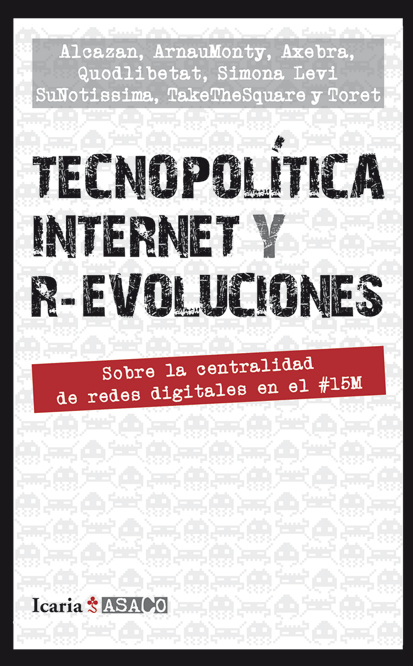“Creativity: innovative models of production and access” is an initiative to systematize the investigation on new models of creative production and accesses to cultural material which seek a new balance between economic sustainability of the cultural sector and access to knowledge for society, as a way to stimulate creativity on all scales. We will be looking at both emerging actors as well as established institutions. The main result is a handbook with best practices and recommendations to be distributed among the sector professionals and public opinion.
In this context, we focus on innovative initiatives which create or permit the access to culture in a way fully adopted to the digital environment where access and transformation of existing works and distribution take on new meaning. One of the central concerns is the new possibilities for authors and entrepreneurs in these practices/models.
This project consist of a series of events that are meant to share the insider-knowledge of each co-organizer and analyze the problems of cultural industries, assess case studies, reach conclusions and bring solutions. The project will produce on one side several report with “best practices” and recommendations aimed at innovative cultural producers, major cultural institutions and policy makers and on the other side public event/show-cases to bring easily the information to the general public and to the sector.
General context and origin of the project
“If Europe wants to remain competitive in this changing global environment, it needs to put in place the right conditions for creativity and innovation to flourish in a new entrepreneurial culture”
During the last decades the creative potential that stems from society has proven to be a primal resource for innovation and for a more sustainable development. These new forms of knowledge which have been branded as social creativity have proven to be an unlimited source of innovation for social and economic aims. New cooperative and participatory processes have allowed the emergence of new economic models that challenge traditional divisions between what can be considered public, private and common.
We can no longer put off re-thinking the economic structures that have been producing, financing and funding culture up until now. Many of the old models have become anachronistic and detrimental to civil society. The aim of this project is to promote innovative strategies to defend and extend the sphere in which human creativity and knowledge can prosper freely and sustainably.
Across Europe, people are recognizing the need for an international space to build and coordinate a common agenda for issues surrounding free culture and access to knowledge. The Free Culture Forum of Barcelona created one such space.
The Free Culture Forum is a public platform where more than 100 organization, researchers and activists from different areas (covering sociology, political economy, digital culture, intellectual property rights, innovation, legislation etc.) gather annually since 2009 to coordinate action and strategic decisions. This forum is also the core of the network we have produced in order to set out this project.
The FCForum have produced the Charter for innovation, Creativity and Access to Knowledge (legal proposal for the reform of copyright legislation – 2009) and the Manual for Sustainable Models for Creativity in the Digital Age (2010), which are the starting point of the project carried out by 4 members of the FCForum.
It is necessary a community of practice with the agents that are developing these new experiences of social and cultural production in order to help innovative tools for the production of culture and to break the fear of the creative sector to get involved in this important social change.
Objetives
“Creativity: innovative models of production and access”, applying the Manual for Sustainable Models for Creativity in the Digital Age (FCForum 2010), opts for interconnecting the local knowledge of the institutions organizing the project and the experience of innovative businesses and experts, in order to clarify the challenges of new models of creativity in the digital era and their weaknesses regarding to restrictive policies and old fashioned economic structures in the framework of the EU.
The project pretends to produce several report with “best practices” and recommendations to provide policy reformers, cultural and internet entrepreneurs, creators, citizens and free culture practitioners with practical tools in order to adapt to this new situation in cultural industries. We will be focusing on 2 issues:
- – How public institutions distribute royalties and authors rights.
- – Which are the entrepreneurial practices that can be taken as an example for the reconversion of the creative sector.



 Jornada ‘Tecnopolítica y democracia de red’, 30 de Marzo + curso intensivo Radical Community Manager*, 31 de marzo y 1 de abril.
Jornada ‘Tecnopolítica y democracia de red’, 30 de Marzo + curso intensivo Radical Community Manager*, 31 de marzo y 1 de abril.
